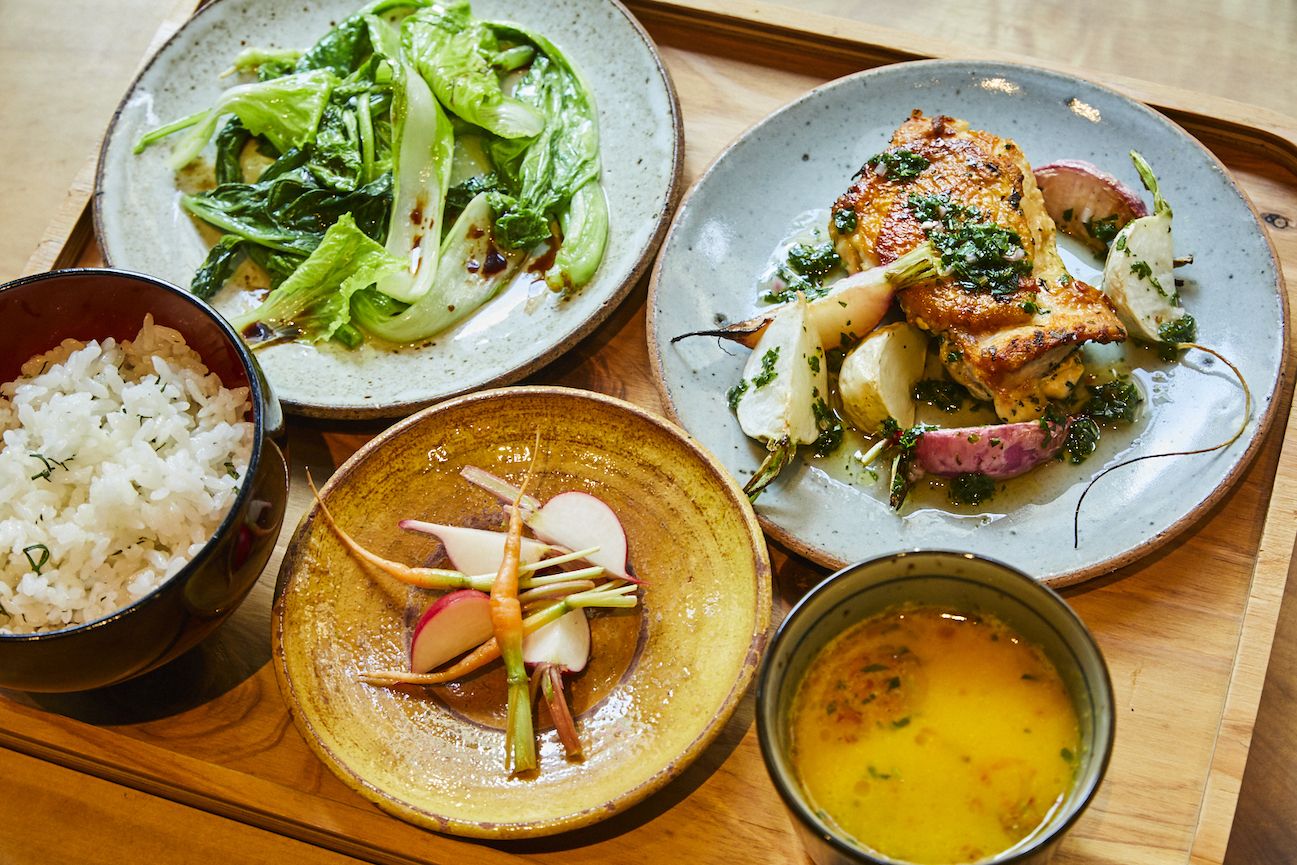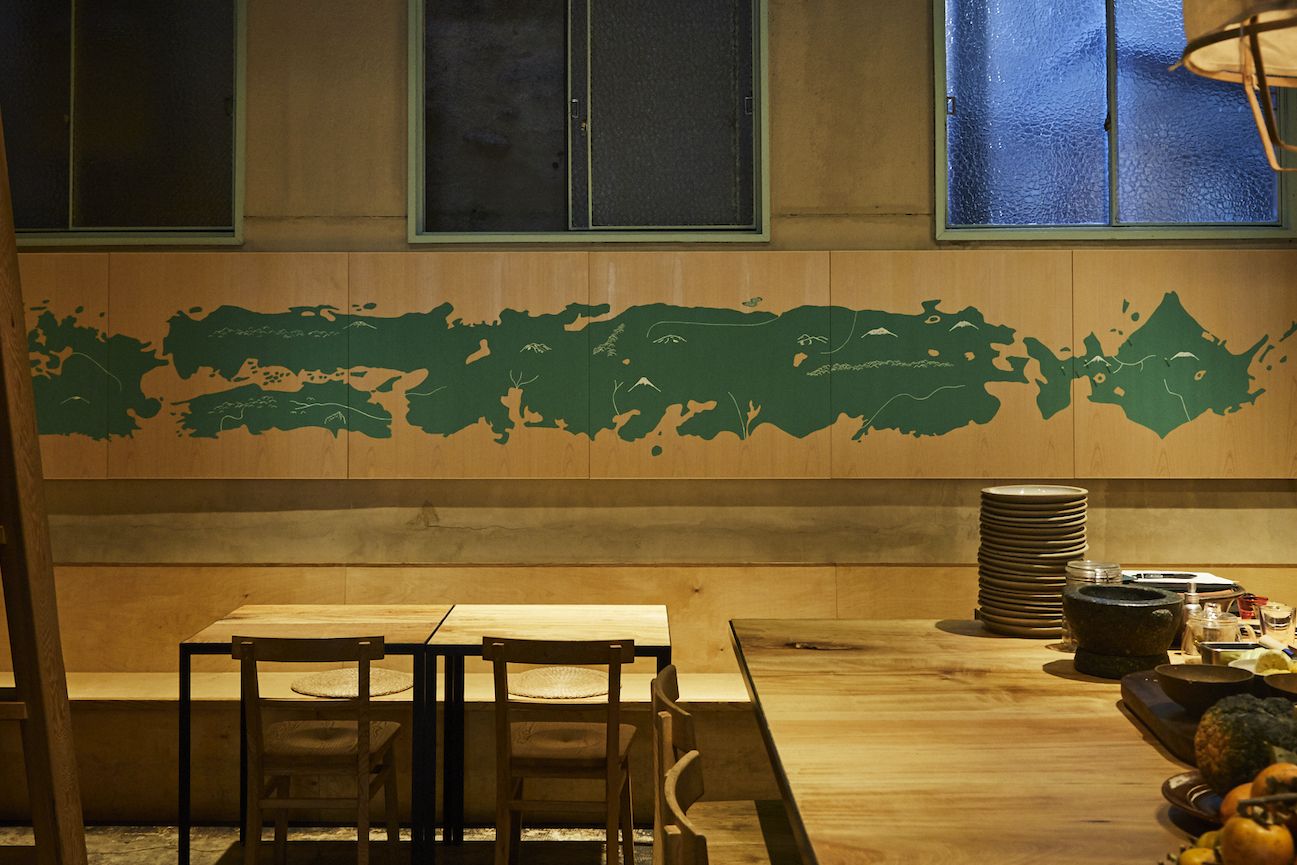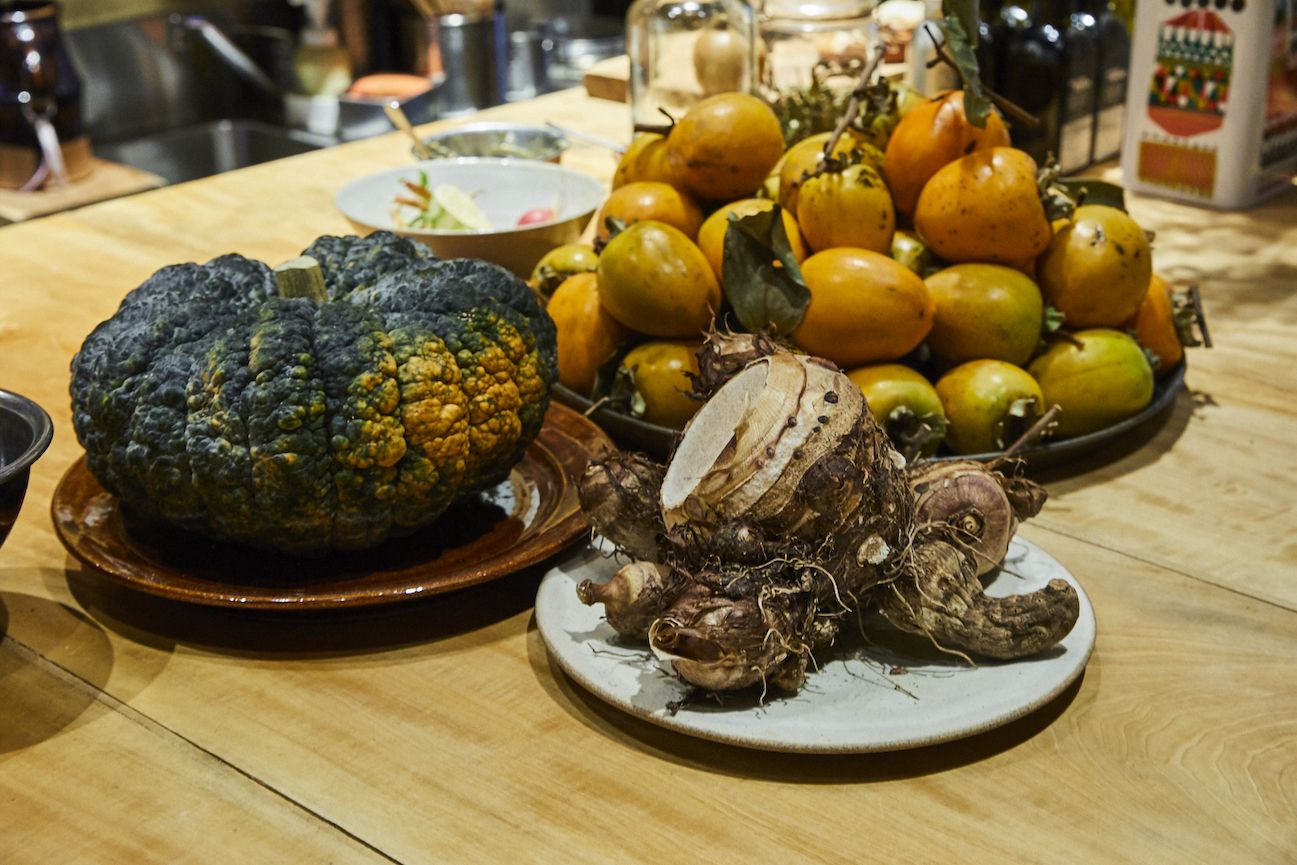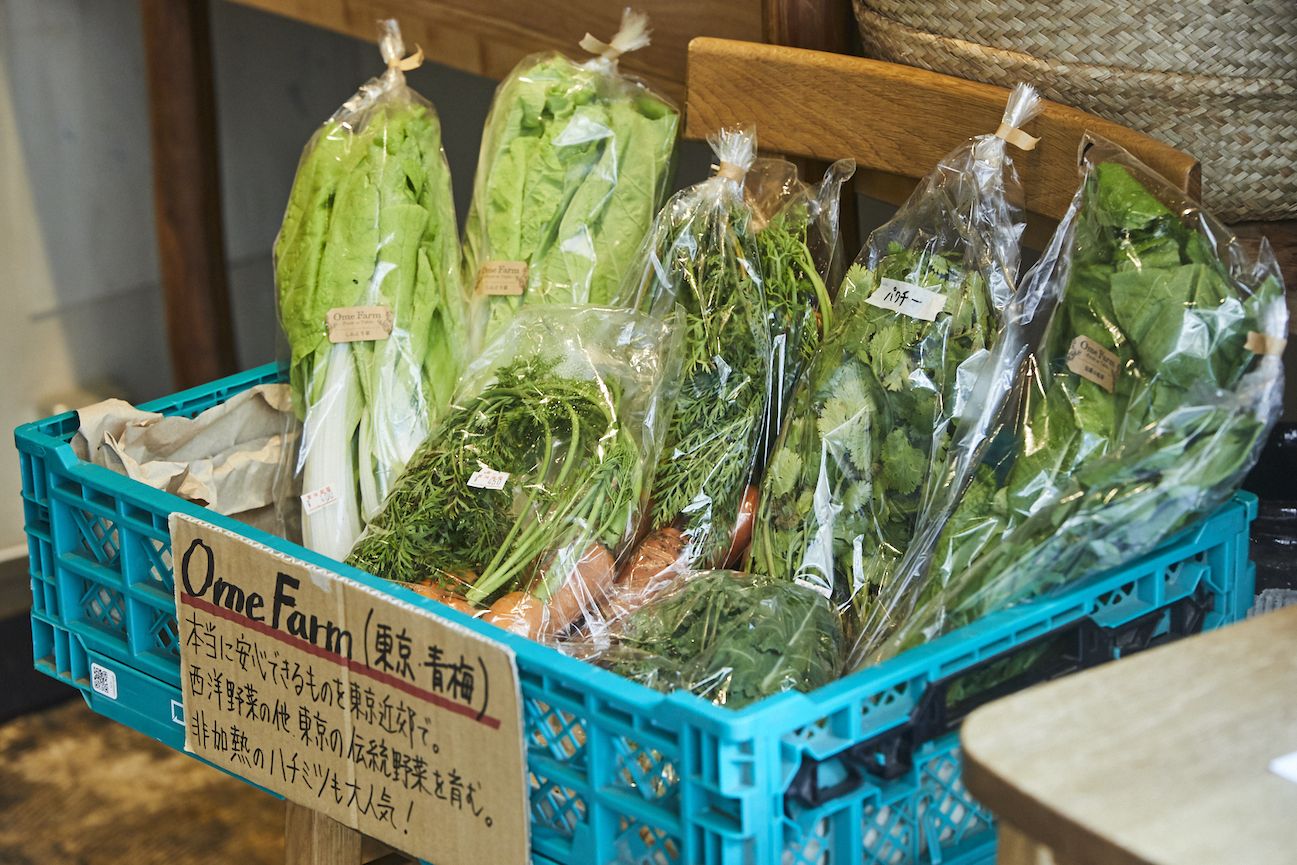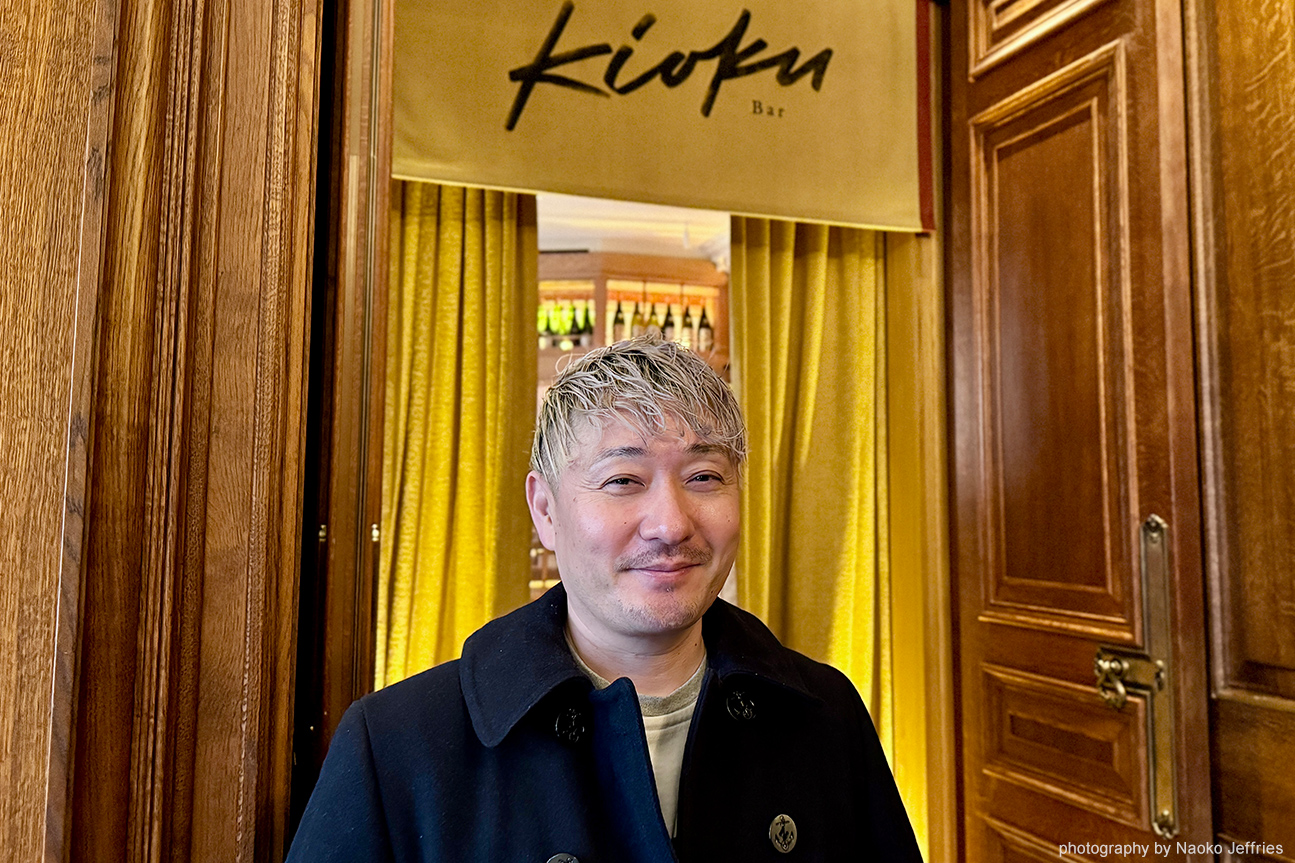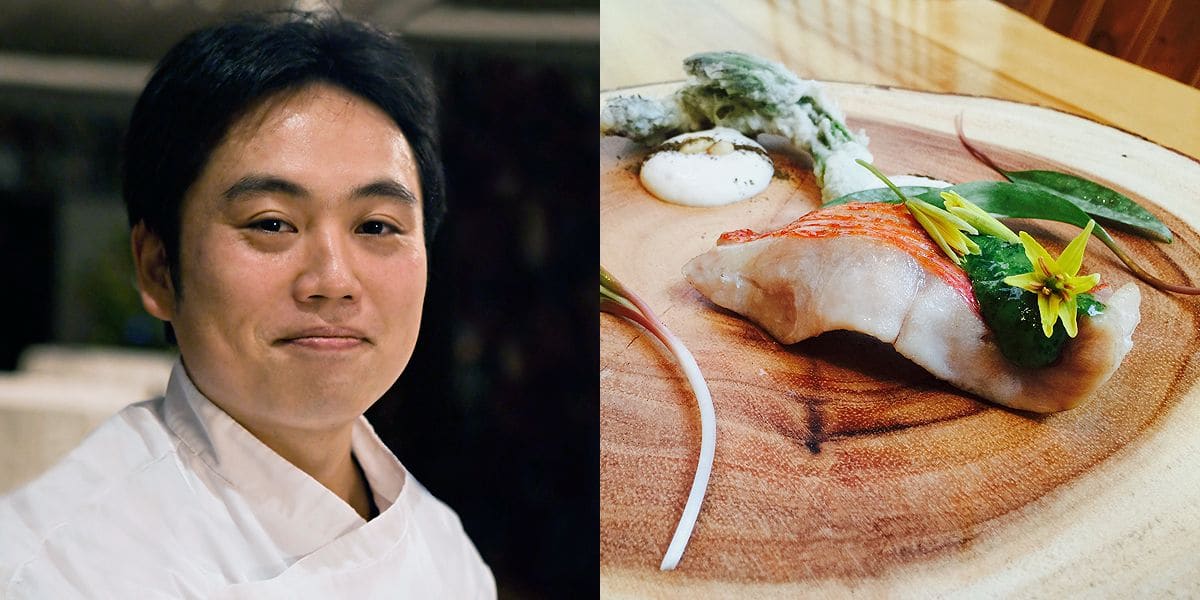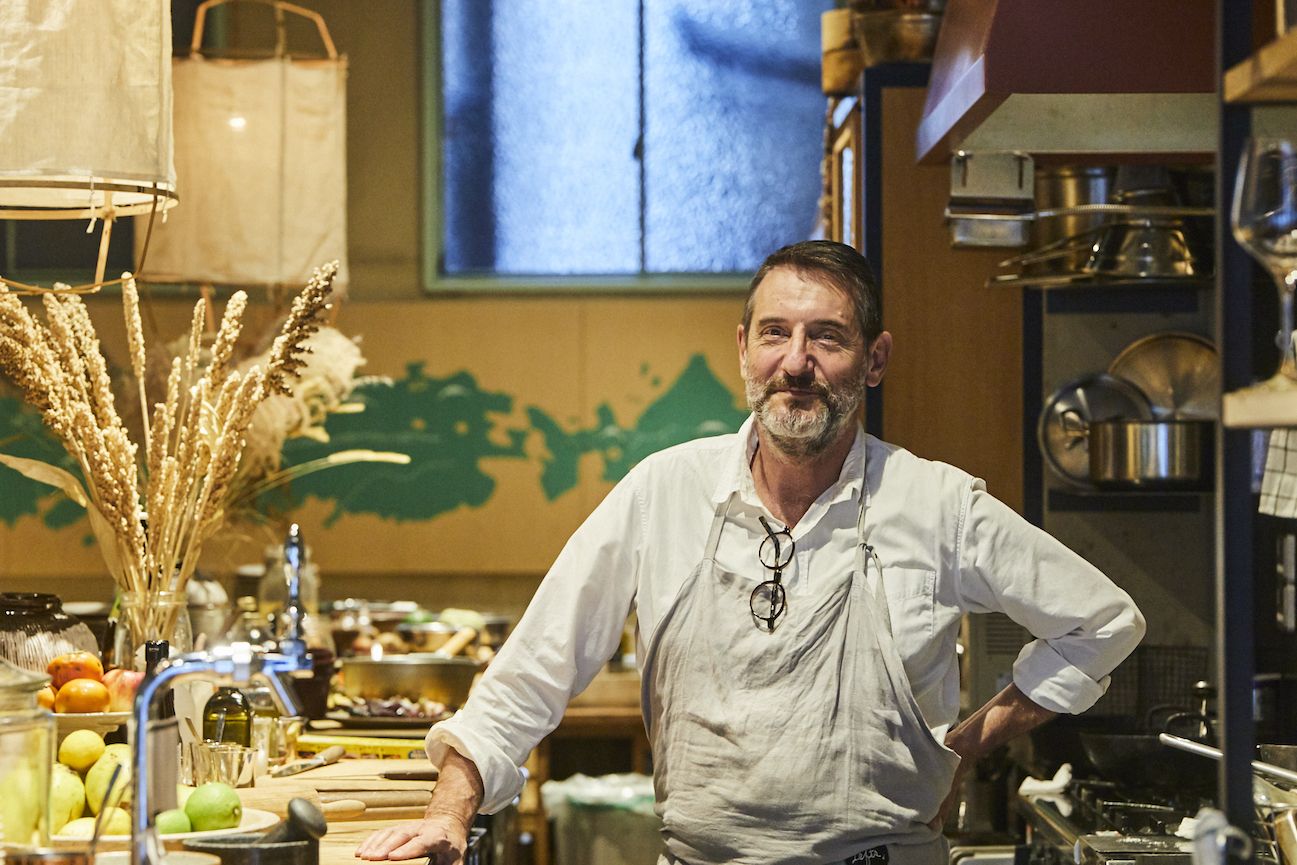
Learning the philosophy of “Washoku” that is close to nature, and seeking the possibilities of Japan-grown ingredients
A long counter table is positioned right in front of the open kitchen. It is piled with vegetables and fruits that have just arrived from the producers. Astringent persimmons, which look like they could fall from their dish, will be hung in front of the restaurant to create dried persimmons which, once ready, will be used in pudding cakes. Taro roots, bigger than a palm of a hand, are sliced thinly, and used along with chili peppers, herbs, yuzu (citron) and salt to make fritters. With a small-sized wax gourd - just come in - in one hand, while thinking up ideas for a new dish, the chef’s eyes shine like those of a child.
Jérôme Waag, from Marseille, France. He is a master of cuisine who crossed to California in his 20s, and worked as head chef for 25 years at Alice Waters’ “Chez Panisse”, a pioneering presence among organic restaurants. The first restaurant he opened for himself is in a corner of Kanda, downtown Tokyo.
“While living in California, I was unsure about what a restaurant is, what food I wanted to create, and its philosophy. It was then that I saw a food report of 2013 which I will never forget. I was impacted by the words I saw in an article reporting that ‘Washoku’ had been made a UNESCO Intangible Cultural Heritage. How it revered nature, sought freshness, carefully preserved the savoriness created by nature, and preserved the beauty carved by nature. It said that Japan had a tradition based on those things”.
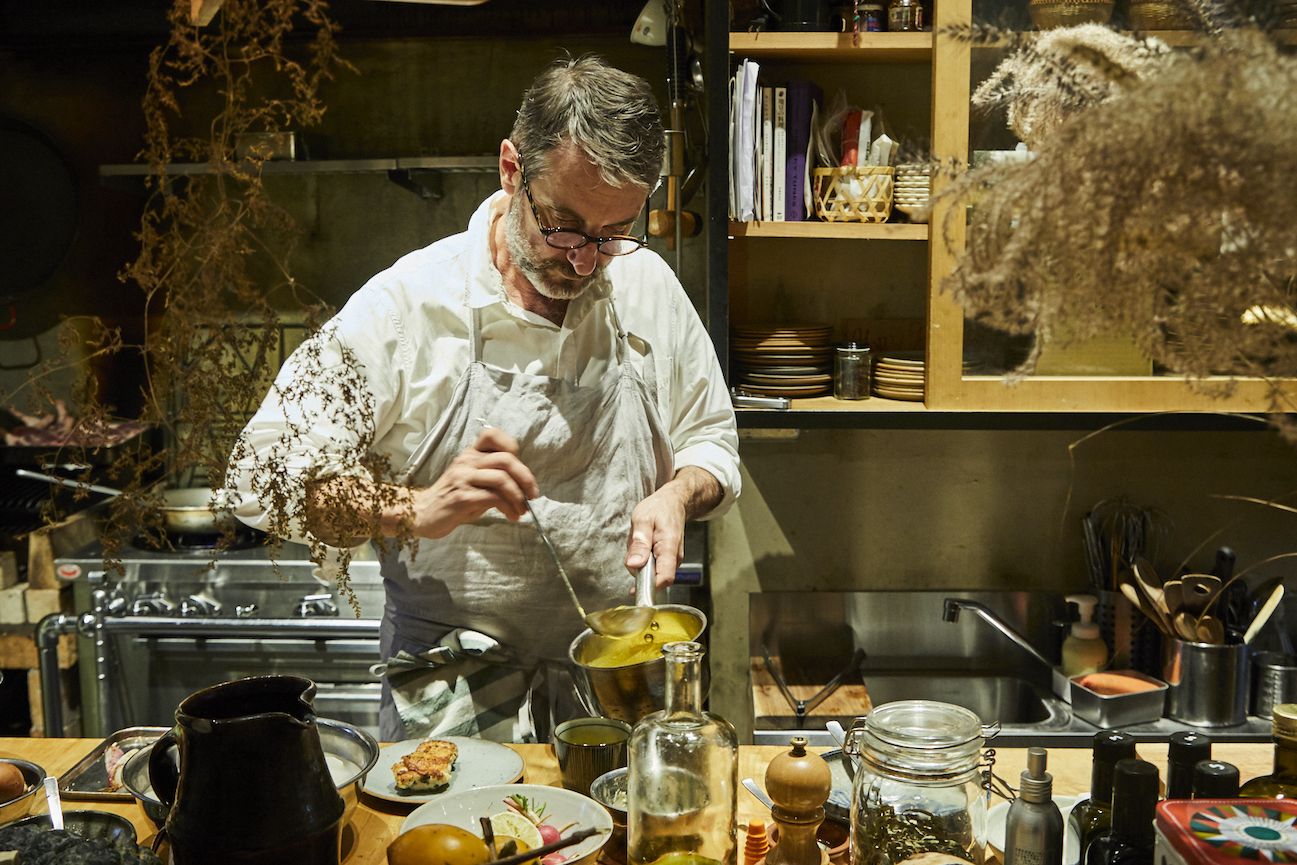
Jérôme Waag finishes off a dish that skillfully makes use of the ingredients around him.
The words expressing Washoku that resonated in Jérôme’s heart were introduced to him at “Chez Panisse”, and were also the essence of the notion of cuisine that he himself sought. At the same time, the words used by UNESCO to describe the country of Japan embraced a new dream for Jérôme.
“Many artists live in San Francisco. Artists are not just people who create pictures and objects; chefs and gardeners, too, and even purveyors of goods, live with a pride as artists coloring the canvas that is society. I too have pride in myself as an artist. So, it was a revelation for me to read that Washoku is a ‘social custom concerning food that embodies the Japanese spirit of a respect for nature’”.
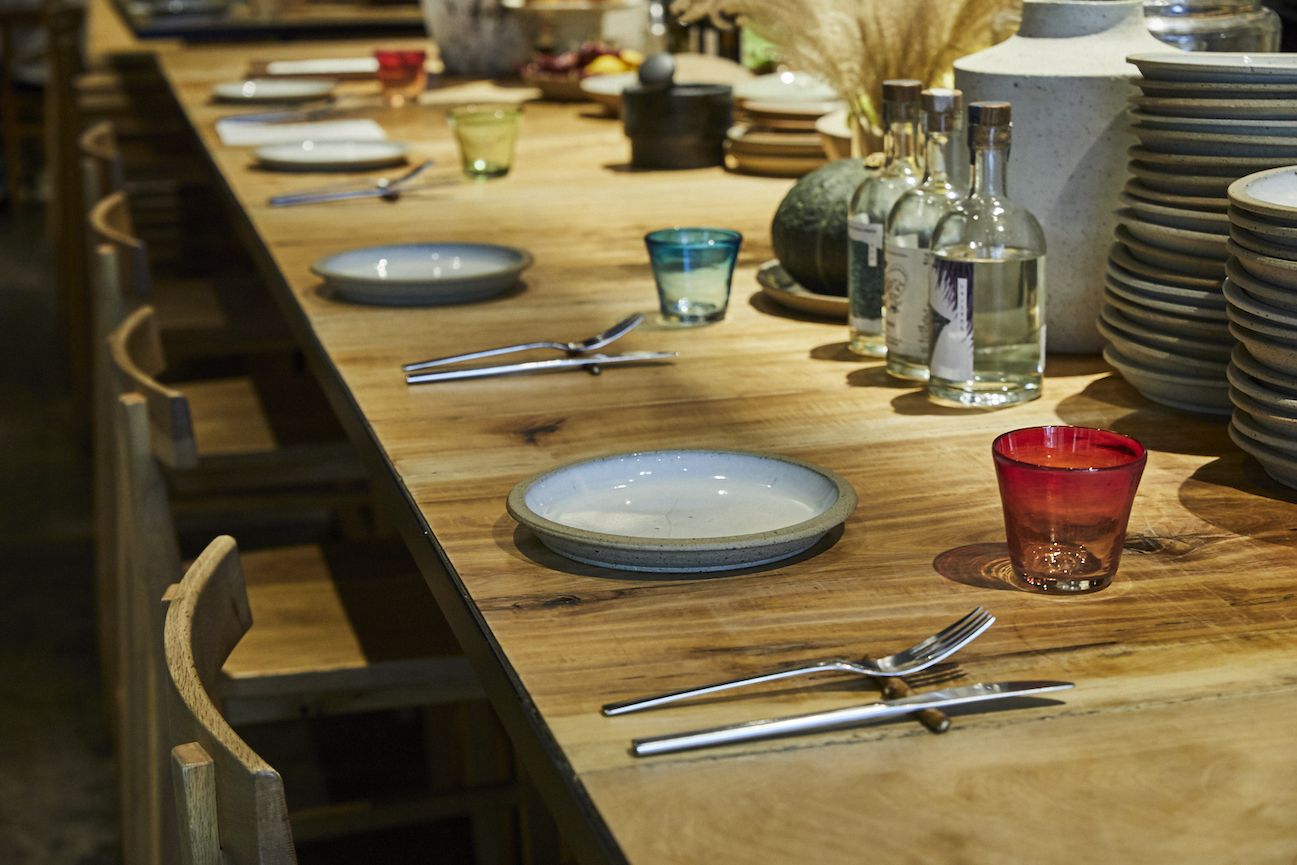
Matching plates and colorful glasses give a pretty feel. The restaurant interior has the pleasant warmth of simple wood.
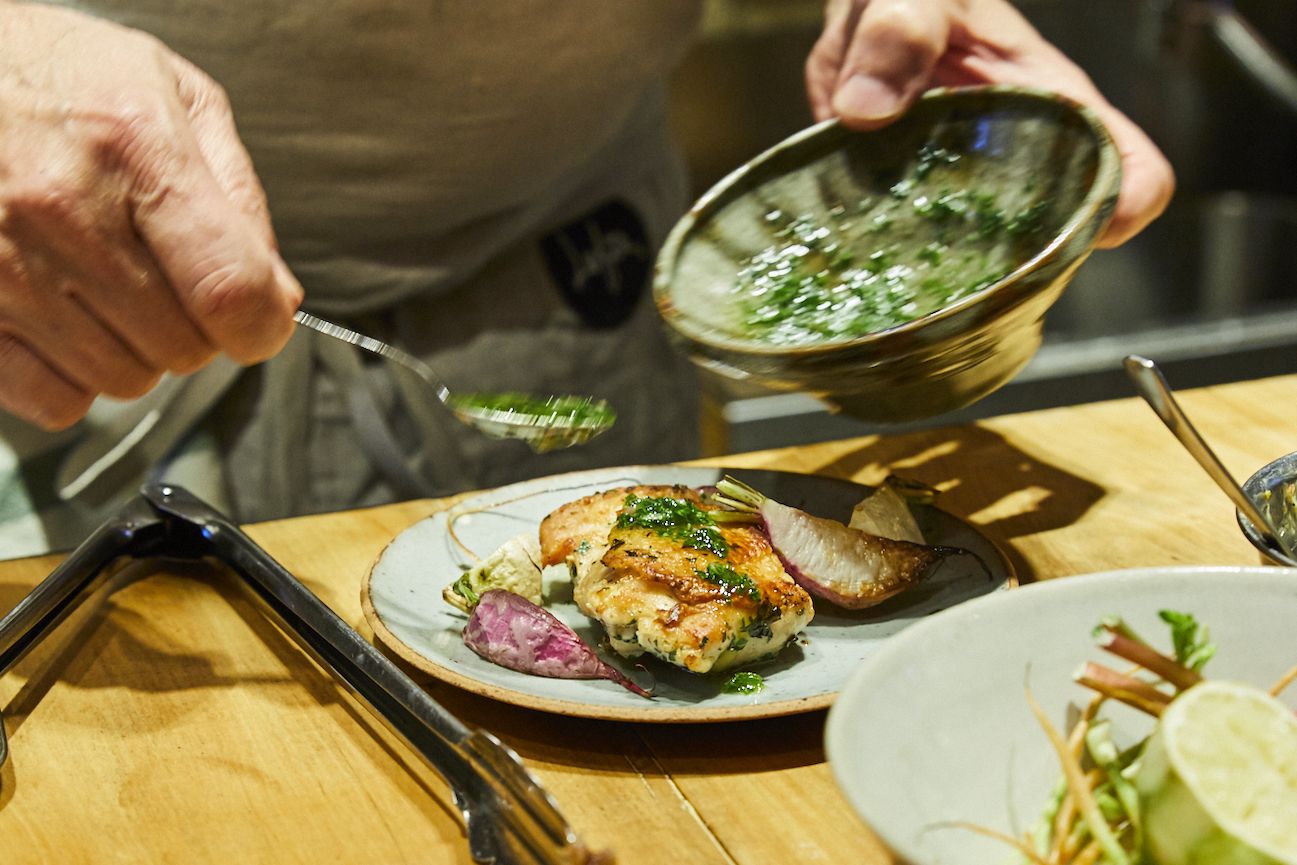
Poured over Citrus sudachi-fed chicken from Kamiyama in Tokushima Prefecture is a radish-leaf salsa.
In 2017, he opened “The Blind Donkey” in Kanda with Shinichiro Harakawa - previously at “BEARD” - whom he met in Japan. Under the mission “100% Organic Japan”, they opened a restaurant using pesticide-free ingredients. He describes that great turning point in his life as a “Poetic adventure”. It is a unique restaurant located in Tokyo chosen by his artist’s spirit as a chef. One wall is decorated with a map of Japan in the form of a work of art. Wanting to create a map of Japan using traditional techniques, they used traditional, natural coatings to depict the “pine tree” of a Noh stage on the same wood as used for a stage. Pins are added to the map, marking the locations of the producers they have met, to show the wide variety of ingredients produced in Japan. Having gone through the COVID-19 pandemic and reopened, they now serve weekly set menus using vegetables from producers in various locations.
“This week we are using vegetables from the farmer of ‘Ome Farm’ on the outskirts of Tokyo. The year before opening was spent traveling to meet producers in various locations. Wanting people to connect with people, we still endeavor to meet directly and do business with producers, and we now have a list to hand of nearly 30 willing producers. Every week, we decide upon a menu predicting what vegetables we will obtain and from where. I am excited when I come across a vegetable I have never cooked with before. I was particularly impressed by the rich variation in Japanese citrus fruits. Lemons, yuzu (citrons), Citrus sudachi, satsumas... There is an amazing number of varieties, also classified by growing location. If they are non-pesticide, then they can be used peel and all, made into juiced mixed with salt Moroccan-style, or used as condiments for fish dishes, etc. Not only vegetables: free-range beef from Hokkaido has a strong flavor of the wild, and rare-breed pork from Kagoshima is tasty even to the fat. Each is a small farm, yet is filled with the passion of its producers. Also, processed foods and condiments that carefully preserving their savoriness are wonderful in Japan, and pickled plums, yuzu citrus pepper, soy sauce, miso, etc. astonish me on a daily basis. My job is to bring out the original goodness in the ingredients”.
Japan, with its clearly demarked seasons, announces the season to us through the ingredients brought to the table. It is, in all honesty, a hard task to opt only for seasonal and organic ingredients in running a restaurant, yet it is an absolute condition in the cuisine Jérôme aspires to create.
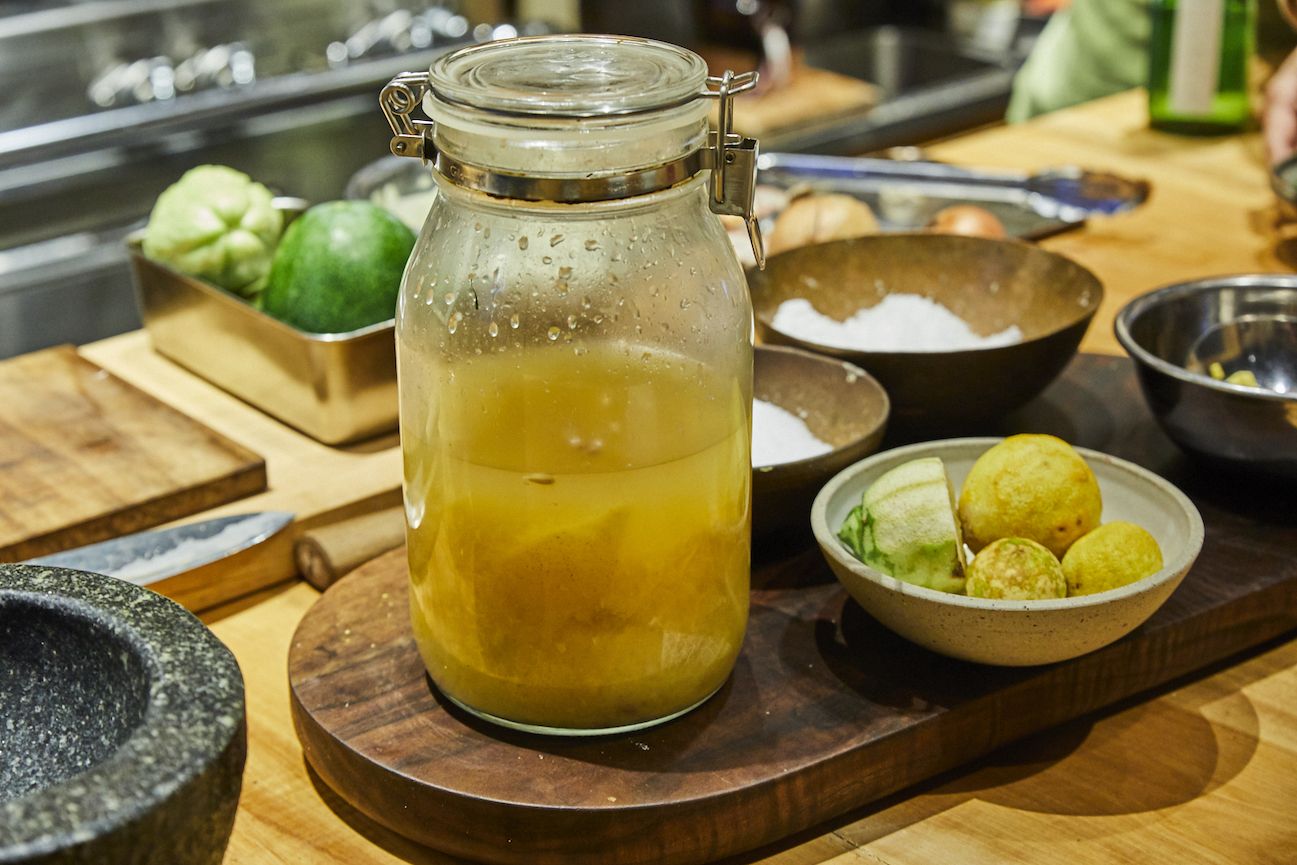
“Preserved lemons” - lemons pickled in salt - are known as a condiment used in Morocco from ancient times.
Jérôme, lured by Japan-produced ingredients, traveled around Japan and arrived at a certain beautiful spot. It was the town of Kamiyama in Tokushima Prefecture, known, too, as a role model for regional revitalization. On the nature-rich hill of the town, overlooking the settlement in the mountains, he and his wife, an environmentalist, are in the process of building a small house. The garden has cherry and yuzu (citron) trees, and, they say, is a place to find delicious mushrooms.
“I want to reflect, more and more, the mighty power of the forests, rivers and seas, and the mountains of Japan, in my cuisine. There are still many magical places in Japan”,
says Jérôme Waag, with eyes shining. It seems that another “Poetic adventure”, in a dream location with abundant ingredients as stage, is about to begin.
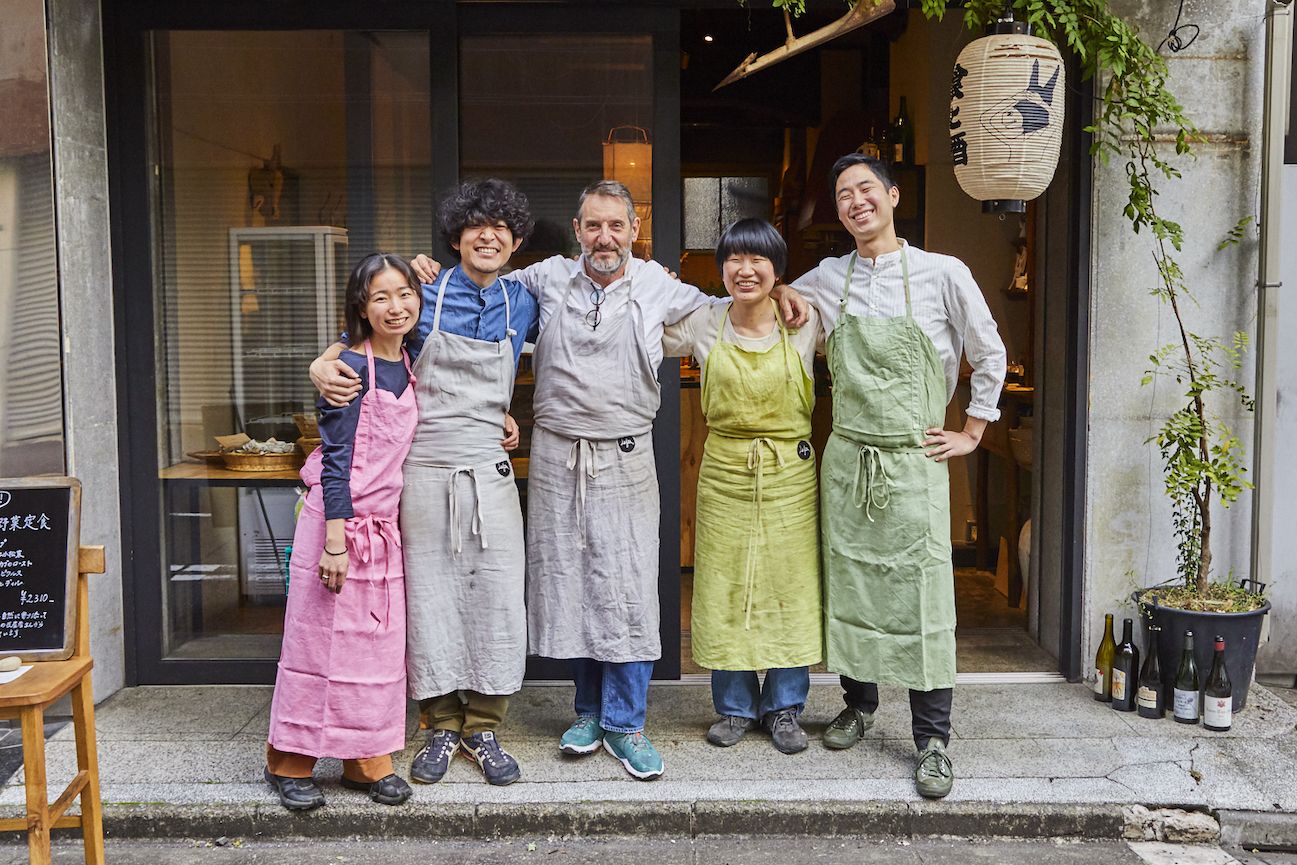
Calling his restaurant a team, he finally requested a photograph of the whole staff.
Text: Miki Suka Photography: Taro Terasawa
Jérôme Waag
From Marseille, France. He worked for 25 years, with experience as head chef, at Alice Waters’ organic restaurant “Chez Panisse” in Berkeley, California, USA. He visited Japan for the first time on the occasion of the edible art installation “OPEN harvest” held at The Museum of Contemporary Art Tokyo in 2011, and which had been held at art museums all over America. He moved to Japan in 2016, and the following year, with Shinichiro Harakawa, launched RichSoil & Co. and opened restaurant “The Blind Donkey” in Kanda, Tokyo.

